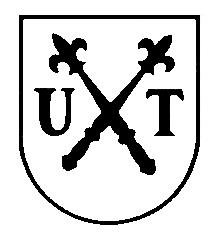|
|
|
|
|
|
|

GERMANY

Introduction
Germany is one of the world's major economic powers. In 1990 it was the largest trading nation, surpassing even the United States and Japan. Its economy, Europe's strongest, accounts for about 35% of the economic output of the 12-nation European Union (EU). Germany is relatively poor in natural resources. Its economic success is based on the production of sophisticated manufactured goods, notably motor vehicles (cars, trucks, and buses), chemicals, and complex machine tools. Almost a third of its national income is derived from exports, mainly to its EU partners.
The official spoken and written language is modern German, or High German (Hochdeutsch), but the ordinary speech of most Germans is influenced by the many dialects found throughout the country. The regional origin of German speakers can usually be determined by their accent. In the 19th century, German universities were pioneers in changing and expanding their curricula to keep abreast of advances in science. They set a new world standard by a skilful and successful combination of teaching and research. The oldest university, at Heidelberg, was founded in 1386. Other venerable universities include Freiburg (1457), Munich (1472), Tübingen (1477), Marburg (1527), and Gottingen
Tübingen and the Eberhard-Karls-Universität Tübingen
Tübingen on the Neckar is located 40 kilometres south of Stuttgart in the federal state Baden-Wurttemberg. It has about 80.000 inhabitants of which 25.000 are connected with the university. Stuttgart, the capital city of the state of Baden-Wurttemberg in southwest Germany, also lies in the Neckar River valley, about 80 kilometres east of the French border. Stuttgart has a population of about 600.000. Stuttgart and its industrial suburbs form Baden-Wurttemberg's most important economic centre. Industrial products include machinery, motor vehicles, electrical equipment, chemicals, paper, beer, textiles, cameras, optical equipment, furniture, pianos, chocolate, and mineral water. The city is also an important railroad junction linking the Rhine Valley and southern Germany. Stuttgart is especially well known as a publishing centre. The city hosts frequent industrial and book fairs.
The University of Tübingen is one of the oldest universities in the German speaking part of the world. It was established in 1477 by the Württembergische Duke Eberhard, then already with a Faculty of Law. Now the Faculty of Law is one of the largest faculties. The faculty employs 25 professors and about 100 Assistants and supporting staff.
The law degree
It takes a German law student about 5 to 6 years to graduate. Typical for the German law degree is that the study period is concluded with a final state exam.
Computers and Law courses
Many courses in the area of Computers and Law are taught at the Eberhard-Karls-Universität Tübingen. There is a basic course, called Personal Computers and Operating System DOS, in which participants learn how to deal with hardware and software. In the course Data Base Systems and Legal Information Systems attention is paid to the state of art in legal documentary systems, both on and off line, using systems such as Juris and LEXinform. The course also pays attention to the underlying legal theory. Within the framework of norm analysis, recent and future developments in the area of hypertext and expert systems are included. Knowledge of programming languages might be useful for this course. Knowledge of programming languages can be obtained in the course Structured programming with C. In this course participants learn to develop their own legal applications (system analysis) and how to write the program code in C. Subject of the course include syntax, data types and process control, operator, variables and declarations, structures and functions and recursion. All courses are taught in German and are open for ERASMUS students.
Languages
Most Germans do not speak other languages, but are able to understand English.
Facilities
The University of Tübingen has several good libraries, mainly with literature in German. The Faculty of Law has its own library. It also has its own PC room, whith twenty 486DX machines for student use.
Accommodation
Although Tübingen has several thousand student rooms in Halls of Residence, it is, in general, difficult to get a room. Accommodation for students participating in the ERASMUS programme will be arranged, but it is necessary to know the study period as long as possible in advance.
Cost of living
The cost of living in Tübingen is more or less equal to most other European cities.
Whom to contact for more information:
If you need more information to decide on a study period at the Eberhard-Karls-Universität Tübingen you can contact professor dr. Fritjof Haft or rechtsassessor Manfred Gerblinger:
Eberhard-Karls-Universität Tübingen
Juristische Fakultät
Wilhelmstrasse 7
72074 TüBINGEN
Germany
Phone: +49 7071 292553
FAX: +49 7071 295258
Email:
gerblinger@uni-tuebingen.de(gerblinger@uni-tuebingen.de)
haft@uni-tuebingen.de(haft@uni-tuebingen.de)